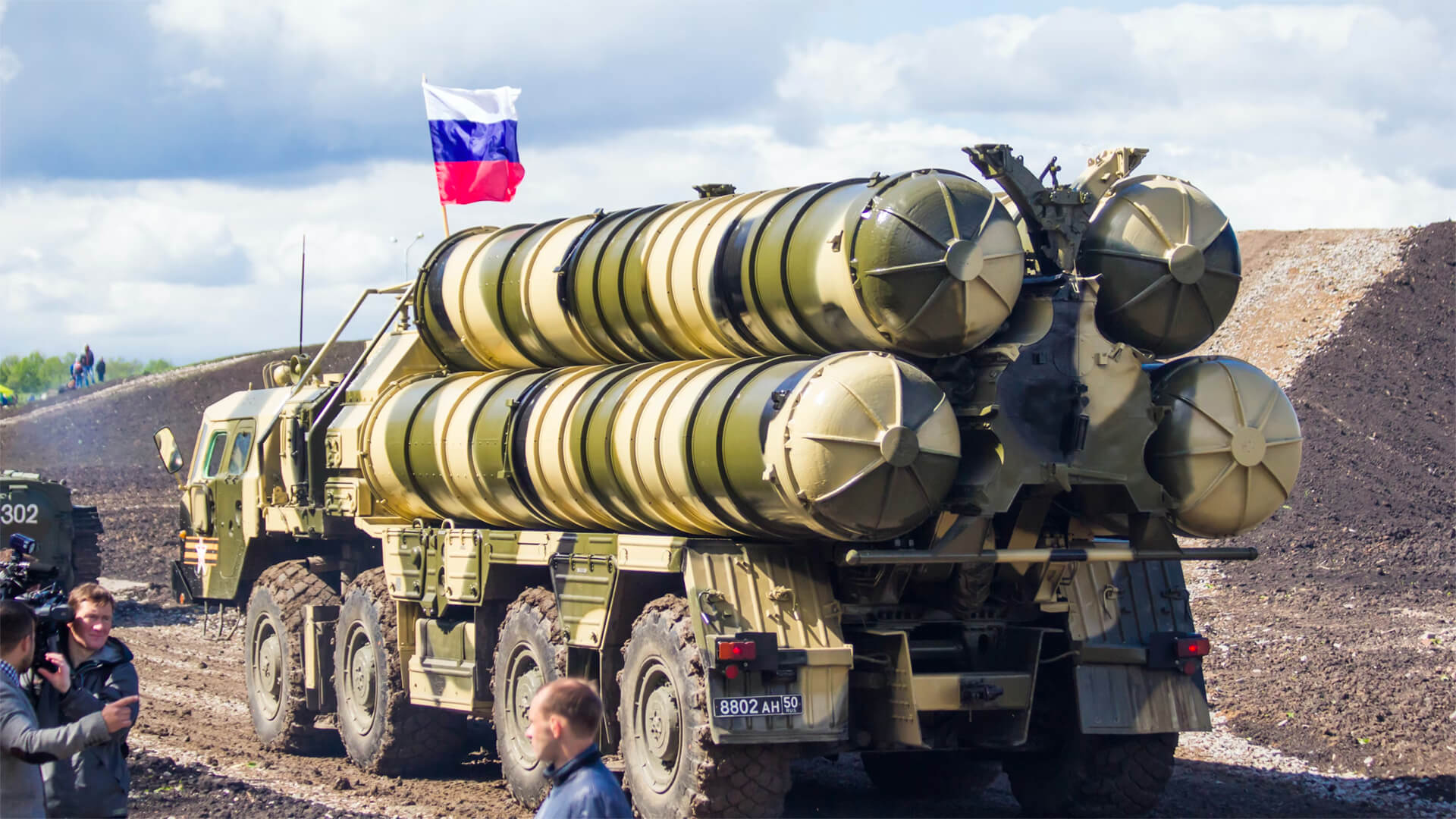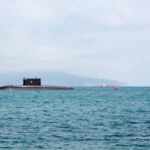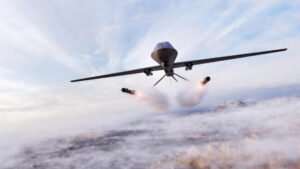
Today is the last day before we officially launch the Patreon page! If you want to continue receiving timely videos and newsletters (as well as some exclusive extras) every weekday, then head on over and join the fun on Patreon. For those of you who have already subscribed, we appreciate your support and feel free to scroll down to today’s video! For those who haven’t, keep reading to learn more about the next chapter here at Zeihan on Geopolitics.
My team and I have decided that to continue releasing the same quality and quantity of content that you have come to know and love, some changes were needed. Beginning on October 1, our daily newsletters and videos will be available for early release on Patreon for a small monthly subscription fee. In addition to the daily newsletters and videos, you’ll also be getting some new content and perks exclusive to Patreon subscribers, including the daily news digest that Peter reads every morning, a private community forum where you can ponder life’s mysteries with other subscribers, and live Q&A sessions for our premium subscribers. Signing up for the Patreon will ensure you’re getting the most current and up-to-date content, before anyone else sees it. You can learn more about the different tiers and offerings at the link below.
We value all members of this community and understand that adding a paid subscription (even if it’s well worth it) isn’t in the cards for everyone. To accommodate those readers and ensure you still get your dose of Peter Zeihan, we will be offering the newsletters and videos on a delay for free. While you might not get the most current information (and you’ll be missing out on all the new bonus content), your morning routine doesn’t have to change.
Okay, now that all the housekeeping is out of the way, let’s move on to today’s video.
So far in the Ukraine War, the Russians have threatened Finland and Sweden with nuclear annihilation for joining NATO, Germany with nuclear annihilation for providing tanks, Britain with nuclear annihilation for providing missiles, France with nuclear annihilation for merely discussing the possibility of troops, and America with nuclear annihilation because it was a Tuesday. Needless to say, the credibility of Russia’s threats leaves something to be desired…
Russia has struggled to maintain a credible “red line” (referring to the point at which Putin will push the shiny red button) for quite a while now. With the US ready to launch a counter attack should nukes fly, the Russians are already hesitant to pull the trigger, but their recent failed missile test and refusal to enter negotiations means they don’t have a ton of options.
In all likelihood, Russia’s only path to victory in Ukraine relies on sheer manpower. Which means they’ll keep sending wave after wave after wave of their population into the meat grinder until something shifts in their favor…because that’s all they know how to do.
Here at Zeihan On Geopolitics we select a single charity to sponsor. We have two criteria:
First, we look across the world and use our skill sets to identify where the needs are most acute. Second, we look for an institution with preexisting networks for both materials gathering and aid distribution. That way we know every cent of our donation is not simply going directly to where help is needed most, but our donations serve as a force multiplier for a system already in existence. Then we give what we can.
Today, our chosen charity is a group called Medshare, which provides emergency medical services to communities in need, with a very heavy emphasis on locations facing acute crises. Medshare operates right in the thick of it. Until future notice, every cent we earn from every book we sell in every format through every retailer is going to Medshare’s Ukraine fund.
And then there’s you.
Our newsletters and videologues are free and we will never share your contact information with anyone. All we ask is that if you find one of our releases in any way useful, that you make a donation to Medshare. Over one third of Ukraine’s pre-war population has either been forced from their homes, kidnapped and shipped to Russia, or is trying to survive in occupied lands. This is our way to help who we can. Please, join us.
Transcript
Hey, everybody. Peter Zeihan here, coming to you from Kolar, Wisconsin. I love this place, except in the winter when—oh my God. Anyway, back on the 26th. The 26th. The 25th. I can’t remember the exact date. Anyway, sometime in September, the Putin government, Putin himself, announced a new nuclear doctrine for the threshold of when they would actually hit the big candy-like red button.
The Russians are having a problem because they have established all kinds of red lines—dozens of them—over the last two and a half years. Whenever someone has crossed them, whether it’s Ukraine in the war, or weapon supplies from the United States, Germany, Britain, or Turkey, the Russians have ignored their own red line.
So they’re having a credibility problem with their deterrence policy. Putin’s announcement a couple of days ago was about trying to reestablish that. He said that now any non-nuclear country who has an ally who is a nuclear country, should the non-nuclear country use a non-nuclear weapon against Russia, it justifies a nuclear strike on the nuclear country.
This is a stupid, pointless press release—kind of reminds me of the Obama era—because it’s already been violated a few hundred times. The Russians have had a real problem establishing or reestablishing deterrence because they keep saying stupid things like this, which are nonsensical. Immediately, the world goes on, and it’s shown to be a bluff.
Now, the issue is that the Russian conventional military is not all that. By the numbers, Ukraine should have been gone a long time ago, but it’s still punching well above its weight. And that’s before you consider that most of the Western alliance is providing the Ukrainians with ammo and weapons. So, how do you reestablish deterrence?
Well, the first, easiest, most direct, and most reliable way is to have a conversation—to basically call up the United States, establish a summit, and talk about strategic issues, of which nuclear weapons are one.
The Russians have firmly refused that option because if they do that, they have to talk about Ukraine. They have to talk about war crimes. They have to talk about mass kidnappings. They have to talk about the weaponization of sexual violence. They have to talk about encouraging migrants to go to Europe by breaking countries in Africa and the Middle East. They have to talk about all the things they’ve been doing over the last 2 or 3 years that they see as giving them a little bit of leverage.
Of course, the Europeans and the United States have acted, and so the Ukraine war is continuing. Ukraine still exists. For the Russians to establish deterrence by negotiation, they have to put everything else on the table, and they are not willing to do that. As a result, we’ve had no meaningful summits in the last three years with anyone.
What’s the second thing you can do? You can do a demonstration nuclear test. The problem is that the Russian nuclear force has degraded just as much as the Russian conventional force. Less than a week ago, the Russians tried to test out one of the new intercontinental ballistic missiles, and it blew up in the silo.
Now, this is really bad—not just from an embarrassing point of view or a deterrence point of view—but most of the avionics for Russia’s ICBM arsenal were built in Ukraine. This new missile that the Russians were testing was their effort to build a domestic supply chain. It is now apparent that, at least at the moment, that is not possible.
It begs the question of just how reliable the rest of the Russian nuclear arsenal is. If they hit the big candy-red button, will anything happen? If countries aren’t confident that things will launch, deterrence can’t happen.
The third thing you can do is nuke someone. The problem here is, while the Russians have bled away and pissed away their deterrence, the United States has not.
The United States continues to test, fine-tune, and deploy its weapons. It made very clear to the Russians in the early weeks of the Ukraine war that if Russia were to throw a nuke into Ukraine or anywhere else, the first thing the United States would do is use its conventional forces to destroy every Russian military and civilian asset—shipping around the world, every single port within range of conventional force, every single port the Russians have.
If that nuclear weapon were to hit a NATO ally and not just Ukraine, the first few weapons the United States would send back would target Putin personally. So that’s not an option either.
So, what’s left?
What’s left is nothing good. You get Obama-style pointless press releases and Trump-style bluster. That is what passes for strategic policy in the Kremlin these days. Now, whether or not any of that is sustainable over the long run is really not the point. The question, ultimately, is how will the Ukraine war play out?
Remember, Russia is still a large country, and even on its back, it still has a huge amount of resources and manpower to throw at the situation. They’re not bottomless anymore—this is not 1920 or 1980—but the Russians still outnumber the Ukrainians at least 3 to 1. They have an industrial plant that, while atrophied, is still an order of magnitude bigger than anything the Ukrainians have.
They have the Chinese providing huge amounts of components. Probably half of all the weapons systems the Russians have built in the last two years are majority made with Chinese components. Upwards of one-quarter of the artillery shells being used by the Russians on the front are coming from North Korea.
And, of course, all the Shahed drones are coming from Iran. So, there are very real flows here. It’s ultimately a question of whether the Russians can put the numbers to play. To that end, the Putin government, just before that disastrous failed nuclear missile test, announced that they were expanding the military to make it the second-largest standing army in the world.
If Russia is going to win, that’s how—through numbers, by ignoring the casualties, and just steamrolling them. If that sounds inhumane, it’s because this is how Russia has won every single war in its nearly thousand-year history. So far, in this war, they haven’t really put their weight into it. We might be seeing that change now.
If the Russians are going to win, this is how it’s going to go. It’s not going to be because of nukes.








